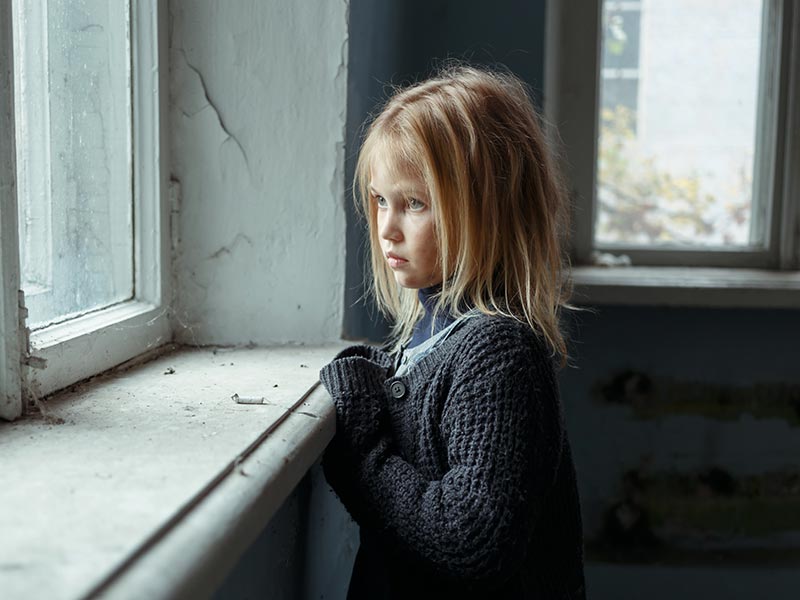




Flying Start is an early years programme for families with children under 4 years of age and is targeted at some of the most disadvantaged areas in Wales. It is an essential resource in achieving the seven core aims for children and young people. Flying Start provides quality childcare to children 2-3 years of age for 2½ hours a day, 5 days a week for 39 weeks. Qualification levels for working in a Flying Start setting are higher than the national minimum standards, which ensures support of the highest quality. The programme works with young children to improve their skills and prepare them for school and for life generally.
A 'cylch meithrin' provides sessional day care and education to children between the ages of 2 and 5 through the medium of Welsh. They promote children's education and development by providing opportunities for them to socialise and learn through play, with an emphasis on language development, and personal, social and emotional development.
Registered childminders are childcare professionals who work in their own homes to provide care and education for children in a domestic setting. Childminders are registered and inspected by Care Inspectorate Wales.
Day nurseries provide full-time and part-time care to children from birth to 5 years. Some nurseries are registered to care for children up to the age of 11. They operate throughout the year and are usually open Monday to Friday from 8am to 6pm so that parents/carers can ensure their children are being cared for whilst they are working. Day nurseries are registered and inspected by Care Inspectorate Wales.
Play assistants or health play specialists lead play activities with children and young people who are patients in hospitals or children's hospices. Children can participate in play and art activities in the play room or in bed. Play is used to support children's development during their illness and to help them to deal with their worries and feelings. Play helps children to learn about their illness and prepare for any treatment.
Out of school childcare clubs provide care before, and sometimes after, schools hours. They are safe places for children to play, relax and socialise. Clubs provide a fun, safe and stimulating environment for children so that their parents can work. Some clubs that are not run by schools collect children from school at the end of the day. Holiday clubs provide a wide range of play activities for children during the school holidays, where children are free to choose what to do.
Education services are delivered by Local Authority education departments. Local education authorities must provide a free school place for all children of 'compulsory school age'. Where a child of school age is unable to receive an education in a school, then the local education authority has a duty to provide a suitable education in some other way such as home education.
Mainstream education may not be appropriate for children with additional educational needs and they will need to attend a special school that provides education that is tailored to their needs. A very small percentage of children with additional educational needs attend a special school. Special schools have a higher staffing ratio than mainstream schools in order to meet each child's additional needs, therefore each child's holistic development is supported.
Every county in Wales has a family information service, which is a free, confidential and impartial service. The service offers information, advice and guidance on the different services available to children, young people and their families. They provide advice and information on child care, children's clubs, toddler groups, leisure and sporting activities, health issues and support for parents.
Further reading:
https://gov.wales/find-your-local-family-information-service
Counsellors can work in schools to provide support for children and young people with emotional problems such as depression, lack of confidence, grief, bullying and anxiety. Counsellors provide children and young people with opportunities to talk and discuss their emotional problems and support them to try and resolve those problems.
Education psychologists provide medical and learning support for individuals and groups of children or young people. They conduct observations within the setting and offer a support programme that assists children and young people experiencing problems with education.
Health visitors are qualified nurses who have studied further and have experience of midwifery. They mostly work in the community, with children up to 5 years old, and their families. Ensuring that children have the best possible start in life is an important part of the health visitor's work. In partnership with parents, health visitors will assess parenting skills, the family and home environment and the developmental needs of young children.
They provide support for families with babies and children who have complex needs. This support enhances parenting competence, adults' competence for work as well as children's educational attendance.
Family assessment provides an opportunity to get to know the whole family better. This assessment helps to decide the best type of support or service for the child and their family. A discussion will be held on how the family is coping with everyday life, what are their concerns and how is the child developing in general.
This team works closely with families with young children and other agencies to identify problems at an early stage, make changes for the better, and try to prevent problems that could lead to something more serious.
They provide bespoke dietary advice to individuals, including babies, children and adults. When adapting and making dietary changes, dieticians seek to prevent and treat a range of medical conditions and support people to make appropriate choices in terms of their diet and lifestyle.
Supporting families has a huge impact on children's life chances. Social Services care for vulnerable children, including children in need. They work with other agencies to provide support, care and assistance to children and their families/carers, for example health and housing services. Social Services work closely with children, parents, relatives and other carers to find the best solution to every situation.
Support may be provided to children and their families by voluntary organisations, for example Barnardo's, Childline, Citizens Advice Bureau, Gingerbread, Mind and the NSPCC. These organisations assist and support families to address disadvantage amongst children.
Rhaglen blynyddoedd cynnar i deuluoedd â phlant o dan bedair oed yw Dechrau’n Deg ac mae wedi’i thargedu at rai o’r ardaloedd mwyaf difreintiedig yng Nghymru. Mae’n adnodd hanfodol o ran cyflawni’r saith nod craidd ar gyfer plant a phobl ifanc. Mae Dechrau’n Deg yn darparu gofal plant o ansawdd i blant 2-3 oed am 2½ awr y diwrnod, 5 diwrnod yr wythnos am 39 wythnos. Mae lefelau cymwysterau ar gyfer gweithio o fewn lleoliad Dechrau’n Deg ar lefel uwch na’r safonau gofynnol cenedlaethol, sy’n golygu cefnogaeth o’r ansawdd orau. Mae’r rhaglen yn gweithio gyda phlant ifanc er mwyn gwella eu sgiliau a’u paratoi ar gyfer yr ysgol ac ar gyfer bywyd yn gyffredinol.
Mae cylch meithrin yn darparu gofal dydd ac addysg sesiynol i blant rhwng dwy a phump oed trwy gyfrwng y Gymraeg. Mae cylchoedd meithrin yn hyrwyddo addysg a datblygiad plant drwy gynnig cyfleoedd iddynt gymdeithasu a dysgu trwy chwarae, gyda phwyslais ar ddatblygiad iaith, a datblygiad personol, cymdeithasol ac emosiynol.
Gweithwyr gofal plant proffesiynol yw gwarchodwyr plant cofrestredig sy’n gweithio yn eu cartrefi eu hunain i ddarparu gofal ac addysg i blant mewn lleoliad domestig. Mae Arolygiaeth Gofal Cymru yn cofrestru ac yn arolygu gwarchodwyr plant.
Mae meithrinfeydd dydd yn cynnig gofal llawn amser a rhan amser i blant o enedigaeth hyd at 5 mlwydd oed. Mae rhai meithrinfeydd wedi'u cofrestru i ofalu am blant hyd at 11 oed. Maent yn gweithredu drwy gydol y flwyddyn ac fel arfer ar agor o ddydd Llun i ddydd Gwener o 8y.b. hyd 6y.p. fel bod rhieni/gofalwyr yn gallu sicrhau gofal i’w plant ifanc tra’n gweithio. Mae meithrinfeydd dydd yn cael eu cofrestru a’u harolygu gan Arolygiaeth Gofal Cymru.
Mae cynorthwywyr chwarae neu arbenigwyr chwarae iechyd yn arwain gweithgareddau chwarae gyda phlant a phobl ifanc sy’n gleifion mewn ysbytai neu hosbisau plant. Gall plant gymryd rhan mewn gweithgareddau chwarae a chelf yn yr ystafell chwarae neu yn y gwely. Defnyddir chwarae i gefnogi datblygiad plant yn ystod eu salwch, ac i’w helpu i ddelio â'u pryderon a'u teimladau.
Mae clybiau gofal plant y tu allan i oriau’r ysgol yn darparu gofal cyn, ac weithiau ar ôl oriau ysgol hefyd. Maen nhw’n llefydd saff i blant chwarae, ymlacio a chymdeithasu. Bydd y clybiau'n darparu amgylchedd sydd yn hwyl, yn ddiogel ac ysgogol i blant er mwyn i'w rhieni/gofalwyr weithio. Bydd rhai clybiau sydd ddim yn cael eu rhedeg gan ysgolion yn casglu plant o’r ysgol ar ddiwedd y dydd. Mae clybiau gwyliau’n darparu ystod eang o weithgareddau chwarae i blant yn ystod y gwyliau ysgol, lle mae plant yn rhydd i ddewis beth i’w wneud.
Mae gwasanaethau addysg yn cael eu darparu gan adrannau addysg Awdurdodau Lleol. Rhaid i awdurdodau addysg lleol ddarparu lle am ddim mewn ysgol i bob plentyn sydd o 'oed ysgol gorfodol'. Os na fydd plentyn oed ysgol yn gallu derbyn addysg mewn ysgol, yna mae dyletswydd ar yr awdurdod addysg leol i ddarparu addysg addas mewn ffordd arall, megis addysg yn y cartref.
Y Cyfnod Sylfaen yw’r cwricwlwm presennol ar gyfer plant rhwng tair a saith oed yng Nghymru. Mae gan bob plentyn yng Nghymru yr hawl i gael o leiaf 10 awr o addysg Cyfnod Sylfaen rhan amser am ddim mewn ysgol, neu feithrinfa sy'n cael ei hariannu, yn y tymor sy'n dilyn eu penblwydd yn dair oed. Mae pwyslais ar ddysgu drwy wneud, gan roi mwy o gyfleoedd i blant feithrin profiadau uniongyrchol drwy chwarae a dysgu gweithredol.
Efallai na fydd addysg prif lif yn briodol i blant ag anghenion addysgol ychwanegol a bydd angen mynychu ysgol arbennig sy’n darparu addysg bwrpasol ar eu cyfer. Mae gan ysgolion arbennig gymhareb staff uwch nag ysgolion prif lif er mwyn cwrdd ag anghenion ychwanegol pob plentyn, felly mae datblygiad cyfannol pob plentyn yn cael ei gefnogi.
Mae gan bob sir yng Nghymru wasanaethau gwybodaeth i deuluoedd sydd yn wasanaeth rhad ac am ddim, sy’n gyfrinachol ac yn ddiduedd. Mae’r gwasanaeth yn cynnig gwybodaeth, cyngor ac arweiniad am y gwasanaethau gwahanol sydd ar gael i blant, pobl ifanc a’u teuluoedd. Maent yn cynnig cyngor a gwybodaeth am ofal plant, clybiau plant, grwpiau babanod, gweithgareddau hamdden a chwaraeon, materion iechyd a chefnogaeth i rieni.
https://llyw.cymru/dod-o-hyd-ich-gwasanaeth-gwybodaeth-i-deuluoedd-lleol
Mae cwnselwyr yn gallu gweithio mewn ysgolion i gynnig cymorth i blant a phobl ifanc gyda phroblemau emosiynol megis iselder, diffyg hyder, galar, bwlio a phryder. Mae cwnselwyr yn rhoi cyfleoedd i blant a phobl ifanc siarad a thrafod eu problemau emosiynol ac yn eu cefnogi er mwyn ceisio eu datrys.
Mae seicolegwyr addysg yn darparu cymorth meddygol a dysgu ar gyfer unigolion a grwpiau o blant neu bobl ifanc. Maent yn cynnal arsylwadau o fewn y lleoliad ac yn cynnig rhaglen gefnogaeth sy’n helpu plant neu bobl ifanc sy'n cael anawsterau gydag addysg.
Nyrsys cymwysedig sydd wedi astudio ymhellach ac sydd â phrofiad o fydwreigiaeth (midwifery) yw ymwelwyr iechyd. Mae ymwelwyr iechyd yn sicrhau bod teuluoedd yn cael y gefnogaeth orau posib er mwyn cwrdd ag anghenion eu plant. Maent yn gweithio yn y gymuned gan amlaf, gyda phlant hyd at 5 oed, a’u teuluoedd. Rhan bwysig o waith ymwelydd iechyd yw sicrhau bod plant yn cael y dechrau gorau mewn bywyd. Mewn partneriaeth â rhieni, bydd ymwelydd iechyd yn asesu’r sgiliau rhianta, y teulu a’r sefyllfa gartref ac yn ystyried anghenion datblygiad y plant ifanc.
Mae Gweithwyr Cymorth Teulu yn darparu cefnogaeth i deuluoedd gyda phlant sydd ag anghenion cymhleth. Mae’r cymorth yma yn gwella’r rhianta, yn sicrhau presenoldeb plant yn yr ysgol ac yn gwella cyfle’r oedolyn i gael swydd.
Wrth asesu teulu, mae cyfle i ddod i adnabod y teulu cyfan yn well. Mae’r asesiad hwn yn helpu i benderfynu pa fath o gymorth neu wasanaeth sydd orau i’r plentyn a’r teulu. Rhoddir sylw i sut mae’r teulu yn ymdopi gyda bywyd o ddydd i ddydd, beth sy’n eu poeni, a sut mae’r plentyn yn dod ymlaen yn gyffredinol.
Mae’r tîm yma’n gweithio yn agos gyda theuluoedd ac asiantaethau eraill er mwyn adnabod problemau yn gynnar a gwneud newidiadau er gwell. Y gobaith yw atal datblygiad problemau mwy difrifol.
Mae’r Dietegydd Cymunedol yn cynnig cyngor dietegol wedi ei deilwra’n benodol i unigolyn. Wrth addasu a gwneud newidiadau dietegol, mae’r dietegydd yn ceisio atal a thrin amryw o gyflyrau meddygol a chefnogi pobl i wneud dewisiadau priodol o ran diet a ffordd o fyw.
Mae cymorth i deuluoedd yn cael effaith fawr ar gyfleoedd bywyd plant. Bydd y Gwasanaethau Cymdeithasol yn gofalu am blant sy’n agored i niwed, gan gynnwys plant mewn angen. Maent yn gweithio gydag asiantaethau eraill i ddarparu cymorth, gofal a chefnogaeth i blant a’u teuluoedd/gofalwyr, er enghraifft gwasanaethau iechyd a gwasanaethau tai. Mae Gwasanaethau Cymdeithasol yn gweithio’n agos gyda phlant, eu rhieni, perthnasau a gofalwyr eraill er mwyn darganfod yr ateb gorau i bob sefyllfa.
Gall cefnogaeth gael ei ddarparu i blant a’u teuluoedd gan sefydliadau gwirfoddol, er enghraifft Barnardo’s, Childline, Cyngor Ar Bopeth (Citizens Advice Bureau), Gingerbread, Mind a’r NSPCC (Cymdeithas Genedlaethol er Atal Creulondeb at Blant). Mae’r sefydliadau hyn yn rhoi cymorth a chefnogaeth i deuluoedd er mwyn mynd i’r afael ag anfantais ymhlith plant.

Public Health Wales have developed a long term strategy which brings together seven strategic priorities in order to ‘Work to achieve a healthier future for Wales’. Public Health Wales’ seven priorities are:
Further reading:
https://phw.nhs.wales/about-us/our-priorities/
The Chief Medical Officer for Wales launched a consultation on a scheme to reduce the number of smokers and the number of people being exposed to second-hand smoke. The main aim is to ensure a 16% reduction in smoking by 2020 and realise the vision of a smoke-free society in Wales where tobacco causes no harm to anyone. The actions include:
According to the Welsh Government Best Practice guidelines on Food and Nutrition, children between 1 and 5 years old need at least 5 portions of fruit and vegetables every day. They advise parents to use either potatoes, bread, rice, pasta or other starchy carbohydrates as the basis for toddlers' meals.
Children between 2 and 5 years old can gradually start to move towards the same balance of foods as adults, ensuring that they have a variety of foods from the 5 food groups in order to stay healthy, for example:
Children need to drink approximately 6-8 glasses of fluid a day, ideally water or milk
Tooth decay is the most common oral disease affecting children in the UK. Good oral care can prevent tooth decay. Decay occurs when babies and children consume too much sugary food and drinks and fail to brush their teeth regularly. Teeth should be brushed as soon as the first tooth appears, and this should continue throughout life using fluoride toothpaste.
It is essential that children visit the dentist regularly.
A dental check-up enables the dentist to examine oral health by looking at the teeth and gums for signs of disease. Tooth decay and gum disease can be prevented so it is better to seek early treatment.
Flying Start health visitors work with the Designed to Smile programme to improve oral health for pre-school age children. This programme is funded by the Welsh Government.
Eye tests for children are essential. Short-sightedness and long-sightedness, astigmatism or lazy eye are very common conditions and can usually be treated relatively easily.
Eye tests can help to identify certain conditions before they start to affect a child’s eyesight and eye health. They also make sure that that child is making the most of their eyesight and seeing things as clearly as possible. Eye tests can help to identify health problems such as diabetes in the early stages of illness.
Children should be taken to an optician for an eye test if they:
Accidents are one of the most common causes of death amongst 1 to 5 year olds. Every year, around 500,000 children under 5 must go to hospital due to accidents at home. Children need to explore and learn about their surroundings. Parents or carers can help them by making their home as safe as possible to avoid injury.
Common accidents include:
Mae Iechyd Cyhoeddus Cymru wedi datblygu strategaeth hirdymor sy'n dod â saith blaenoriaeth strategol at ei gilydd er mwyn 'Gweithio i Wireddu Dyfodol Iachach i Gymru'. Saith blaenoriaeth Iechyd Cyhoeddus Cymru yw:
Mwy o wybodaeth:
https://icc.gig.cymru/amdanom-ni/ein-blaenoriaethau/
Cychwynnodd Prif Swyddog Meddygol Cymru ymgynghoriad ynglŷn â chynllun i leihau’r nifer o bobl sydd yn ysmygu, a phobl sy’n dod i gysylltiad â mwg ail-law. Y brif nod yw lleihau’r lefelau ysmygu i 16% erbyn 2020 a cheisio gwireddu gweledigaeth o gymdeithas ddi-fwg yng Nghymru lle nad yw tybaco yn niweidio unrhyw un. Mae’r camau gweithredu yn cynnwys:
Yn ôl canllawiau Arfer Gorau Llywodraeth Cymru ar Fwyd a Maeth, maent yn nodi bod plant rhwng blwydd a phump oed angen o leiaf 5 dogn o ffrwythau a llysiau bob dydd. Maent yn rhoi cyngor i rieni ddefnyddio un ai tatws, bara, reis, pasta neu garbohydradau startshlyd eraill fel sail i brydau bwyd plant bach.
Gall plant rhwng dwy a phump oed ddechrau symud yn raddol tuag at yr un cydbwysedd bwyd ag oedolion, gan sicrhau eu bod yn cael amrywiaeth o fwydydd o’r 5 grŵp bwyd er mwyn cadw’n iach, sef:
Mae plant angen yfed oddeutu 6-8 cwpan o hylif y dydd, yn ddelfrydol, dŵr neu laeth.
Pydredd dannedd yw’r afiechyd y geg fwyaf cyffredin sydd yn effeithio ar blant yn y Deyrnas Unedig. Drwy sicrhau gofal y geg dda, mae modd atal pydredd dannedd. Mae pydredd yn digwydd wrth i blant fwyta gormod o fwydydd a diodydd sy’n llawn siwgr, a pheidio brwsio eu dannedd yn rheolaidd. Dylid brwsio dannedd cyn gynted ag y mae’r dant cyntaf yn ymddangos, a pharhau i wneud hynny gan ddefnyddio past dannedd â fflworid.
Mae’n hanfodol bod plant yn ymweld â’r deintydd yn rheolaidd. Mae archwiliad deintyddol yn caniatáu i’r deintydd archwilio iechyd y geg, ac edrych ar y dannedd, y deintgig a’r geg am arwyddion o glefyd. Mae pydredd dannedd a chlefyd y deintgig yn gallu cael eu hatal, felly mae’n well cael eu trin yn gynnar.
Mae ymwelydd iechyd Dechrau’n Deg yn cydweithio â rhaglen Cynllun Gwên er mwyn gwella iechyd y geg, ar gyfer plant cyn oed ysgol. Mae’r cynllun hwn wedi ei ariannu gan Lywodraeth Cymru.
Mae profion llygad plant yn hollbwysig. Mae cyflyrau fel byrwelediad a hirwelediad, astigmatedd neu lygaid diog yn gyffredin iawn ac fel arfer gellir eu trin yn ddigon rhwydd.
Gall profion llygaid helpu i adnabod rhai cyflyrau penodol cyn iddyn nhw ddechrau effeithio ar olwg ac iechyd llygaid y plentyn. Maent hefyd yn sicrhau bod y plentyn yn gwneud y mwyaf o’i olwg a’i fod yn gweld pethau mor glir â phosib. Gall profion llygaid helpu i adnabod problemau iechyd fel diabetes yng nghyfnod cynnar y salwch.
Yn ychwanegol, mae angen mynd â’r plentyn at yr optegydd i gael prawf llygaid os yw yn:
Damweiniau yw un o’r achosion mwyaf cyffredin o farwolaethau ymhlith plant rhwng blwydd a phump oed. Yn flynyddol, rhaid i tua 500,000 o blant o dan bump oed fynd i’r ysbyty oherwydd damwain yn y cartref. Mae angen i blant chwilio a deall mwy am y peryglon sydd o’u cwmpas. Gall rieni neu ofalwyr eu helpu i wneud hyn drwy wneud eu cartref mor ddiogel â phosibl fel nad ydynt yn anafu eu hunain.

Childhood disadvantage affects many aspects of life such as health, development and well-being. It was announced in 2016 that 29% of children in Wales live in poverty. Children live in poverty if they live in households earning less than 60% of the average income.
Poverty means not having enough money to buy food, clothing and a safe place to live.
The Welsh Government's aim is to ensure that no child is living in poverty by 2020.
The Government is working on several key areas to reduce child poverty. For children, it ensures that affordable childcare is available to enable parents to work. It is also seeking European funding to help workless families as well as support Families First and Communities First. These developments all work with families facing problems due to poverty.
Children raised in poverty may face more physical and mental health problems. This may be due to factors such as poor quality housing, homelessness or insufficient safe areas for outdoor play.
The United Nations Convention on the Rights of the Child (UNCRC) lists the rights of children up to 18 year olds. These rights are in place to keep children safe, ensure that they have what they need to survive and develop and influence decisions which affect their lives.
Poverty can have a serious impact on the lives of 0-2 year olds. Babies living in poverty do not have the best start in life. Several articles in UNCRC address this:
Article 6: The right to life and to grow up to be healthy.
Article 24: The right to good food and water and to see a doctor if you are ill.
Article 26: The right to extra money if your family does not have enough money to live.
Article 27: The right to a good standard of living.
Article 28: The right to learn and go to school.
Children living in poverty are often linked to the following:
Mae anfantais yn ystod plentyndod yn effeithio ar sawl agwedd o fywyd, megis iechyd, datblygiad a llesiant. Cyhoeddwyd yn 2016 fod 29% o blant yng Nghymru yn byw mewn tlodi ac felly yn perthyn i deuluoedd ag incwm sydd o dan 60% o’r incwm cyfartalog. Ystyr tlodi yw bod heb ddigon o arian i brynu bwyd, dillad a rhywle diogel i fyw.
Nod Llywodraeth Cymru yw sicrhau nad oes unrhyw blentyn yn byw mewn tlodi erbyn 2020.
Mae’r Llywodraeth yn gweithio mewn sawl maes allweddol er mwyn lleihau tlodi plant, ac maent yn ceisio sicrhau bod gofal plant fforddiadwy ar gael er mwyn i rieni fynd i weithio. Maent hefyd am sicrhau cyllid Ewropeaidd i helpu teuluoedd lle nad oes neb yn gweithio, a chefnogi ‘Teuluoedd yn Gyntaf’ a ‘Chymunedau yn Gyntaf’ sy’n gweithio gyda theuluoedd sy’n wynebu problemau oherwydd tlodi.
Mae’n bosib fod plant sy’n tyfu mewn tlodi hefyd yn wynebu mwy o broblemau iechyd corfforol ac iechyd meddwl. Gall hyn fod oherwydd eu bod yn byw mewn tai sydd o ansawdd gwael, eu bod yn ddigartref, neu fod heb leoedd diogel i chwarae yn yr awyr agored.
Mae Confensiwn y Cenhedloedd Unedig ar Hawliau’r Plentyn (CCUHP) yn rhestru’r hawliau sydd gan blant hyd at 18 oed sy’n eu diogelu a sicrhau bod ganddynt yr hyn sydd ei angen i oroesi a datblygu, a chael llais wrth wneud penderfyniadau sy’n effeithio ar eu bywydau.
Gall tlodi gael effaith ddifrifol ar fywydau plant ifanc ac o ganlyniad nid ydynt yn cael y cychwyn gorau mewn bywyd. Mae sawl erthygl gan CCUHP yn ymwneud â hyn:
Erthygl 6: Yr hawl i fywyd ac i dyfu i fod yn iach.
Erthygl 24: Yr hawl i fwyd a dŵr da ac i weld y meddyg os ydych yn sâl.
Erthygl 26: Yr hawl i arian ychwanegol os nad oes gan eich teulu ddigon o arian i fyw.
Erthygl 27: Yr hawl i safon dda o fwyd.
Erthygl 28: Yr hawl i addysg a mynd i’r ysgol.
Mae plant sy’n byw mewn tlodi yn aml yn gysylltiedig â‘r isod: